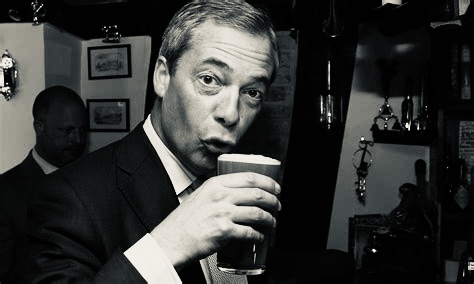Why Prime Ministers Shouldn’t Play Hide-and-Seek With Their Taxes
Posted on September 10, 2025
Ask a politician what taxes are for and you’ll get the fairy-tale version: they fund schools, hospitals and keep the bins collected. Lovely. It makes us feel that every pound we hand over is a moral contribution to society, rather than just another reason we can’t justify £20 for a steak sandwich down at the local pub.
The Economists Can’t Agree
But economists can’t leave anything simple. The conventional crowd argue that taxes are literally the money pot that pays for public services. Modern Monetary Theorists (MMT’s) meanwhile, say that’s nonsense: the government can create money whenever it likes, and taxes are really just a way of stopping us all running around like Monopoly winners, inflating prices into the stratosphere.
In short: either taxes pay for nurses, or they stop you having to remortgage your house for a loaf of bread. Your choice, I haven’t a clue to be honest.
Whichever school you believe, there’s one inescapable truth: taxes are a social contract. They’re the glue that holds a civilised society together. Which is why the person at the very top (the Prime Minister) needs to be whiter than white when it comes to paying them.
Enter Nigel Farage
And that brings us neatly to Nigel Farage. Yes, the man who has already had more political comebacks than Take That farewell tours, now being floated as the next wannabe PM. A man with, shall we say, a chequered financial history. Offshore accounts, mysterious donations, unexplained “gifts”. You name it and it’s probably floated past him like one of his beloved pints of Spitfire bitter that he probably doesn’t even like.
Farage likes to dress himself up as the pint-swilling, man-of-the-people outsider. But let’s be honest: the bloke is about as “ordinary” as a hedge fund manager in a Benidorm karaoke bar. And if he starts banging the drum that a bit of “tax efficiency” is perfectly fine, what message does that send to the public?
Copycat Behaviour
The nation’s builders, plumbers, and small business owners aren’t going to start setting up shell companies in the British Virgin Islands. They haven’t got Nigel Farage levels of cash. They’re going to start thinking, more than ever: “Well, if Nigel can fiddle his taxes, why can’t I knock a bit off this invoice, or pocket some cash-in-hand without telling HMRC?”
This is how corruption spreads, not top-down instructions, but a quiet shrug that makes dodgy behaviour look like common sense.
Meanwhile, when we sit on our sofas watching Simon Reeve documentaries about Norway, Finland, and Sweden, we marvel at the trust those societies seem to have between people and government. We shake our heads in wonder at how smoothly it all works. “Where did it all go wrong?” we ask, as we hear about Norway (who we shared oil with) and their £1.4 trillion wealth fund.
Well, it’s not magic. It’s because their governments tax properly, invest wisely, and hold on to public assets instead of flogging them off on the cheap to whichever mate happens to be lurking around with a party donation and a brown envelope. Trust doesn’t appear out of thin air; it’s built when people see their contributions being used for the common good, not disappearing into the private pockets of the already wealthy.
The “Red Tape” Ruse
And it’s not just taxes. This is the same political crowd that talk about “cutting red tape” with the zeal of a man hacking through jungle vines. Sounds liberating, doesn’t it?
But “red tape” is often just another name for workers’ rights, human rights, environmental protections, and those pesky health and safety laws that stop your boss sending you up a ladder in flip-flops. None of it will be missed until it’s gone, at which point people will be wondering why their rivers glow in the dark, their employment contracts aren’t worth the paper they’re written on, and their workplace looks like a stunt set from Jackass.
Why It Matters
This is the slippery slope. Leaders legitimise behaviour. If the next Prime Minister is a man who treats taxation like an optional service charge and views legal protections as disposable clutter, don’t be surprised when everyone else starts doing the same. And once that social contract frays, so does the very thing that makes a society function: trust.
So yes, laugh at Farage’s bluster, his blokey charm, his endless selfies with pints. But don’t laugh too hard at his attitude to money, or to “red tape.” Because if that becomes the model at the top, the rest of us will follow and the line between an orderly society and an economic free-for-all is thinner than Nigel’s explanations for where the money went.
It’s bad enough now, with Nige in charge, it will be anarchy.m

Got something to say?